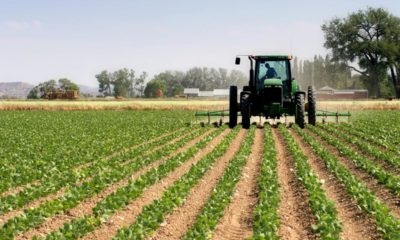In the intricate tapestry of Nigeria’s economic landscape, the agricultural sector finds itself navigating turbulent waters, marked by a paltry 1.9% growth during the first three quarters of 2023.
This lackluster performance stands in stark contrast to the robust 6.1% growth achieved in the corresponding period of 2022, painting a vivid picture of the challenges plaguing the nation’s agrarian backbone.
Amidst the myriad obstacles hindering agricultural prosperity, the scarcity of the naira, foreign exchange woes, dwindling investments, climate change, and the geopolitical impact of the Russia-Ukraine war have collectively cast a shadow over the sector’s growth trajectory.
As Nigeria grapples with these multifaceted challenges, the once-vibrant agricultural domain faces a critical juncture in its pivotal role as a contributor to the nation’s economy.
The National Bureau of Statistics (NBS) sheds light on the intricate nuances of this decline, revealing that the four key sub-activities—crop production, livestock, forestry, and fishing—comprising the agricultural sector grew by a mere 5.24% year-on-year in nominal terms in the first quarter of 2023.
This marked a substantial decrease of 6.31 percentage points from the same quarter in 2022, reflecting the sector’s struggle to maintain its growth momentum.
Crop production emerges as the linchpin of the sector, constituting a substantial 86.85% of the overall nominal value in the first quarter of 2023.
However, despite its dominance, the sector witnessed a decline of 13.44 percentage points in year-on-year growth, plummeting from 18.67% in the preceding quarter to a mere -28.83% in the first quarter of 2023.
This underscores the severity of the challenges afflicting the agricultural landscape.
In real terms, the agricultural sector’s performance in the first quarter of 2023 further mirrors the struggles, with a year-on-year growth of -0.90%, showcasing a decrease of 4.06 percentage points compared to the corresponding period in 2022.
A quarter-on-quarter basis paints an even bleaker picture, with a decline of -30.95%, accentuating the sector’s vulnerability to a confluence of adversities.
Despite the sector’s vital contribution, accounting for approximately 23% of the real Gross Domestic Product (GDP), the agricultural landscape faces a pivotal juncture demanding strategic interventions.
The African Development Bank’s earlier projection hinted at the potential for transformative growth, envisioning Africa’s agricultural output skyrocketing from $280 billion to $1 trillion by 2030 with the right investments and policy initiatives.
Regrettably, the promises of agricultural revitalization have yet to materialize as the sector contends with a barrage of challenges, resulting in food price hikes that reverberate through the economy.
The commitment expressed by the former Minister of Agriculture and Rural Development, Mohammad Abubakar, now appears more crucial than ever.
However, the sector, once a beacon of promise, now stands at a crossroads, grappling with a meager 1.9% growth and a host of unresolved issues that demand urgent attention for its rejuvenation.

 Billionaire Watch2 weeks ago
Billionaire Watch2 weeks ago
 Startups4 weeks ago
Startups4 weeks ago
 News4 weeks ago
News4 weeks ago
 News4 weeks ago
News4 weeks ago
 Bitcoin4 weeks ago
Bitcoin4 weeks ago
 Naira4 weeks ago
Naira4 weeks ago
 Forex3 weeks ago
Forex3 weeks ago
 Treasury Bills4 weeks ago
Treasury Bills4 weeks ago























